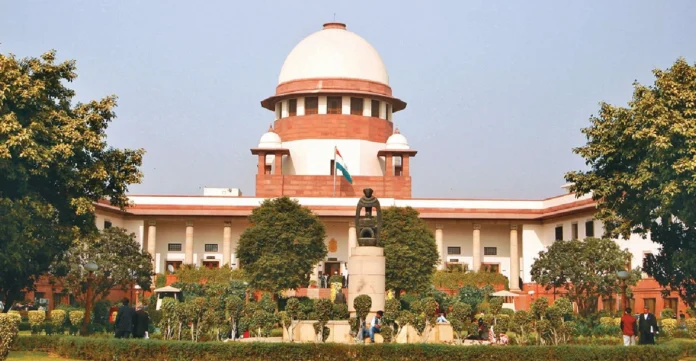The Supreme Court has issued notice to the Union government, the Government of National Capital Territory of Delhi (GNCTD), the Municipal Corporation of Delhi (MCD), and the Delhi Development Authority (DDA) over the protection and regularisation of affluent unauthorised colonies in the national capital.
Based on MCD’s affidavit, the most controversial and affluent unauthorised colonies currently identified for regularisation include Defence Services Enclave, Sainik Farms, Freedom Fighters Enclave, Anant Ram Dairy, Rajokri Enclave, Anupam Gardens, and Bhavani Kunj. Since high-profile people, including politicians, bureaucrats, retired defence officials and businessmen live in these places, regularisation of these colonies has become a socially and politically sensitive matter.
The Bench of Justice Abhay S Oka and Justice Ujjal Bhuyan granted two months to the Union Ministry of Housing and Urban Affairs, the GNCT, MCD and DDA to file their affidavits, stating reasons for the protection of illegal structures belonging to affluent sections.
The top court of the country passed the order on Tuesday on a petition filed by Amicus Curiae Senior Advocate Anitha Shenoy regarding illegal constructions in colonies such as Shri Sai Kunj in Vasant Kunj.
While benevolent gestures to protect unauthorised slum dwellers were understandable, the benefit of regularisation being regularly extended to illegal colonies of affluent people through various legislations and regulations, raised serious concerns.
Such efforts further seem to circumvent orders for demolition of affluent illegal colonies, it added.
The Apex Court made the observations after MCD filed a fresh status report pursuant to the March 25 order in the MC Mehta vs Union of India case.
On March 25, the top court of the country directed the MCD to disclose how many structures were covered under the National Capital Territory of Delhi Laws (Special Provisions) Second (Amendment) Act, 2014. Besides, the authority was asked to place on record the PM-UDAY scheme for regularisation.
MCD had earlier filed a status report on April 24, which revealed that in Shri Sai Kunj colony, out of total 126 flats, only 10 were protected under the 2014 Special Provisions Act. While 116 flats were illegal, show cause notices were issued only to 28, said the report, adding that process was underway to issue notice to the remaining 88 flats. The affidavit placed reliance on the PM-UDAY Scheme for regularisation.
The Apex Court, however, said that under the regulations framed in 2019, affluent unauthorised colonies were explicitly excluded from the scope of PM-UDAY.
Shri Sai Kunj colony featured at serial number 43 in the list of affluent colonies annexed to the regulations, which meant that the regulations were not applicable to the colony, it added.
Noting that no rights could be conferred under the PM-UDAY scheme to residents of affluent colonies, the Bench directed the MCD to explain why it had cited the PM-UDAY scheme in support of Sai Kunj residents.
It also ordered the MCD to issue notices under Section 343/344 of the Delhi Municipal Corporation Act to all remaining 88 illegal flats within one week.
Amicus Curiae Senior Advocate S Guru Krishna Kumar submitted that under the PM-UDAY regulations, affluent unauthorised colonies such as Sai Kunj could not be regularised. He added that despite the express exclusion, authorities continued to shield illegal constructions in colonies like Sainik Farms, Sai Kunj and others.
The Senior Counsel sought regulasation of the colonies on the grounds that the city could not be run on unauthorised constructions, and the same unleashed a civic mess.
The Bench said extending protection to ultra-affluent, illegal colonies fundamentally undermined urban planning and strained civic infrastructure without any accountability.


